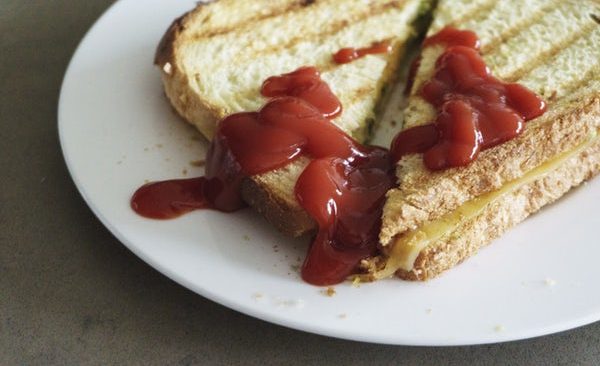Ray Broughton, Lecturer, Horticultural Consultant, and our Club’s President, spoke to us about “Successful Garden Maintenance”. We were given detailed advice, updating and information on good practice.
Any chemicals to be used as pesticides must be approved by UK law. Milk, vinegar, salt and flowers of Sulphur are now excluded, but recommended is SB Plant Invigorator, which stimulates growth and controls pests such as whitefly, thrips and aphids and the fungus that causes blackspot on roses. Spray them now! Lichen does not cause harm but blue algae should be controlled, so sprinkle with iron sulphate. A power wash to remove moss from a glass roof will be more effective after first spraying with a weak solution of organic washing up liquid and leaving for twenty minutes. A survey of garden sheds prompted a salutary warning about safe storage. Chemical products need to be beyond children’s reach and as the heat makes the chemicals degenerate check dates on containers and keep them cool and secure.
When buying turf ensure that the soil matches that in your garden. If purchasing grass seed Ray strongly recommends buying good quality seed and looking for the name of the grass on the packet. Over-sow bare patches on lawns with “smart seed”. Potassium sulphate helps to harden up the grass. For “fairy rings” and red ants fork in Iron sulphate, and use a Nitrogen fertilizer on Red Thread. Green up yellow patches of grass with water in hot weather, for 10 minutes every 4 days. The garden mole should be moved to another area by using Iron sulphate on the grass in Spring and Autumn.
“Compact” sweet peas are new FI Hybrids. Sow in March in a basket-like framework as we saw in a slide. Sow seed for hardy annuals now, (also shown in a colourful slide,)w for a lovely and cheap display. A striking new Hydrangea, low-growing, will be worth looking out for: two names – “Fireworks” and “Strawberries and Cream”. Remember the tulip is in fact an annual bulb. As soon as they stop flowering feed them and leave until June. If you have a bulb you love dig it up in July, place it upside down, and scoop out most of the basal stem: small bulbs will develop on the remaining stem and grow into more plants.
If you are dividing a plant go to the edge, not the middle, where any viruses will be, that is, keep one third and destroy two thirds. New potatoes do not need earthing up. When the flowers have gone lift them two weeks later. To grow potatoes prepare the ground and plant seed potatoes one inch below ground. Place organic barley straw on top, and the plants will grow through it. Once a week spray as for tomatoes; the tomato fertilizer makes the straw environment too hot for any pests to survive. “Raspberry Red” is the rhubarb recommended, as it is already sweet. In October dig up the remaining rhubarb and leave on the surface. Plant in March to April.
Re cleaning your pond, water recycling units are available; choose one with “hedgehog” filters, as they are easier to clean. Place organic barley straw in (in a shape the size of a brick) in the pond each month, as it attracts bacteria.
More general information:-
By law no new drainage must go on to the public highway. Fibre edging for lawns, heat guns for thermal weed control, and artificial wood (made from recycled coffee cups) may be useful. Reconstituted soil is best avoided. No Nasturtiums near your vegetables, as they harbour pests, and clean your water butt at least once a year, for the same reason! When a frost is forecast go out at 6.30 pm and spray plants with water, a fine covering only, that looks like condensation. (The latent heat produced by evaporation protects from frost damage.) Finally Ray returned to an old favourite, tomato ketchup, to clean tools and keep them free from disease.
A splendidly informative talk, delivered with Ray’s characteristic clarity and humour.




